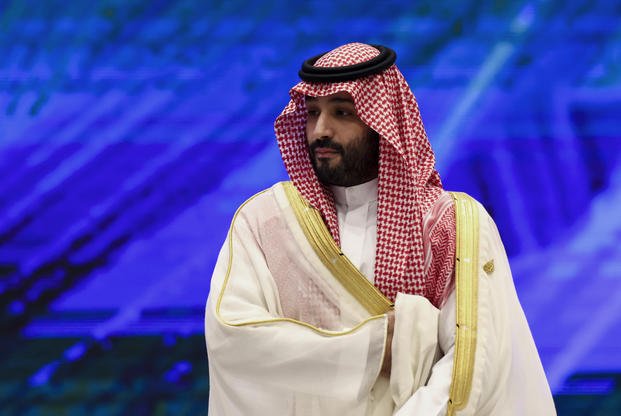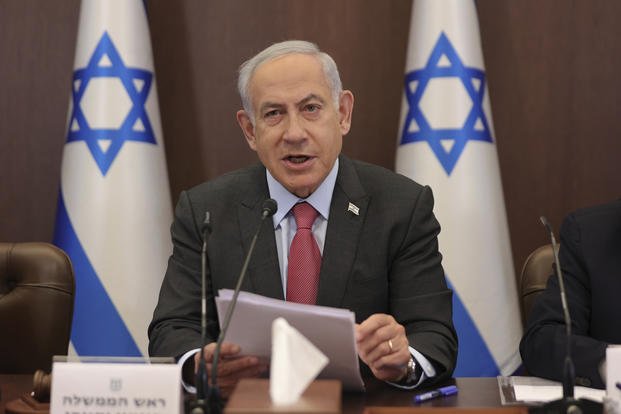Back in 1982, Pierre Gemayel, the courtly leader of the right-wing Phalange Party, Lebanon’s strongest Christian political group, made what seemed at the time to be a shrewd move. Always on the lookout for a powerful, preferably Western ally to protect Lebanon’s Christians from the neighboring Arabs states and affiliated groups that often meddled in the country’s internal affairs, Gemayel and his son Bashir, the Phalangist military commander, welcomed an invading Israeli army hellbent on expelling Syrian occupation forces and Palestine Liberation Organization guerillas who had taken over the southern border region. By the end of the summer, the Israelis had driven the Syrians and the PLO out of the country, and Bashir, with his father’s blessing, rode the Israeli victory to Lebanon’s presidency.
Three weeks later, however, Bashir was dead, the victim of Syrian assassins. So Gemayel implemented his Plan B, which entailed getting his remaining son, Amine, elected as president. Only this time, he made sure Amine ran on a pro-Syrian platform.
Amine won his election, served his six-year term and today still remains active in Lebanese politics at the age of 81. The Lebanese, having survived under scores of foreign occupiers over the centuries by knowing how to roll with the punches, have a saying that captures their hard-won pragmatism: “Whoever is sleeping with my mother is my father.”
Across the Middle East, survival often depends on knowing how to hedge against such reversals of fortune. And by welcoming Chinese diplomacy to resolve frictions in a region long regarded as a U.S. preserve, Saudi Crown Prince Mohammed bin Salman has taken a page from Gemayel’s playbook: with his ties to the United States fraying badly, the Saudi leader’s turn to China to broker a normalization of relations with Iran has provided him with an alternative ally, allowing him to play off Washington against Beijing. The elder Gemayel, who died in his sleep in 1984, would be proud.
At the same time, however, Saudi Arabia’s rapprochement with Iran has disturbed the Israelis, who have long maintained a discreet intelligence relationship with the kingdom. In recent years, that relationship has been grounded in their mutual concerns over Iran’s nuclear program, its growing influence across the Middle East, and terrorist attacks by Teheran’s Revolutionary Guard.
None of those issues have disappeared with the rapprochement agreement, so where does that leave the Israeli-Saudi intelligence relationship?
“The clandestine Saudi intelligence relationship with Israel dates to the early 1960s and has survived many upheavals in the region,” Bruce Riedel, a former CIA Middle East analyst, told SpyTalk. “It will continue quietly, despite the Saudi-Iran deal to restore diplomatic relations.”
In dating the beginning of Saudi-Israeli intelligence ties to the early 1960s, Riedel was referring to their mutual support during Yemen’s civil war for the country’s monarch against rebel forces backed by Egypt and the Soviet Union.
Since Saudi Crown Prince bin Salman effectively took power in 2016, the kingdom’s intelligence relationship with the Mossad has deepened exponentially.
In November 2020, the Mossad reportedly tipped off Saudi Arabia about an imminent Iranian attack on its embassy in the Hague, enabling the Saudis to take precautions and avoid suffering any casualties. Last May, the Israeli daily Haaretz reported that over the preceding decade, several senior Israeli officials, including two Mossad directors, a defense minister and two national security advisers secretly visited Saudi Arabia for talks with senior Saudi officials.
Since then, the brash Saudi prince also has allowed eastbound Israeli civilian flights to cross Saudi airspace and met unofficially with Prime Minister Benjamin Netanyahu. The Saudi leader also has made it clear that he favors recognizing Israel and, unlike previous Saudi leaders, won’t make normalized relations contingent on the creation of a Palestinian state in the West Bank and Gaza Strip.
Forks in the Road
Still, while many of the targets of their intelligence collaboration will remain the same, officials of the two countries also will find their strategic interests diverging as Israel tries to assess the implications of the Saudi-Iran rapprochement for itself and the region, and Saudi Arabia tries to balance its relations with the hardline governments in Jerusalem and Tehran.
James Spencer, a former British military intelligence officer and now a London-based Middle East expert, points out that normalized relations between Riyadh and Iran may result in the resolution of the war in Yemen, where Iran-backed Houthi rebels have effectively defeated the Saudis. But he stresses that their competition for influence elsewhere will remain, resulting in a cold peace, rather than warm relations.
“So the need for their intelligence relationship will remain,” he said, referring to the Saudis and Israelis. “They will absolutely continue to collaborate against Islamist terrorism, and their collaboration will most likely continue on nuclear issues, but possibly not on some others, such as Yemen, Egypt and Ethiopia. So there will be cooperation where there is mutual interest. It will be far more transactional.”
But some Israelis are concerned their intelligence cooperation with the Saudis on Iran won’t be as robust as before. Yossi Alpher, a former Mossad official, told an online listserv for Middle East experts that a key test for Israel is how the Saudi-Iran rapprochement will affect Riyadh’s intelligence and security collaboration with Israel against Tehran.
Until now, Israel’s Mossad has conducted a campaign of sabotage against Iranian nuclear installations and assassinations of Iranian nuclear scientists. But in the wake of the U.S. withdrawal from the 2015 Iran nuclear deal, its covert actions have succeeded only in temporarily slowing down its uranium enrichment.
Earlier this year, Israel and the United States conducted joint military exercises which simulated a massive air attack on Iran’s nuclear facilities. Israeli Prime Minister Benjamin Netanyahu has warned Israel could attack Iran on its own, hinting his warplanes could use Saudi airspace for such a strike.

Rubbish
But Aaron David Miller, who served as a Middle East adviser to both Democratic and Republican administrations, says Riyadh’s purported willingness to allow such Israeli overflights to attack Iran was never a realistic option.
“The notion that somehow Saudi Arabia would allow itself to be enlisted as the tip of a U.S. or Israeli spear against Iran was untethered from reality,” Miller told Public Radio International’s The World.
Alpher said Israeli intelligence also wants to know how the thaw in Iranian-Saudi relations will affect their violent rivalries and proxy wars, and how those outcomes will affect Israel’s interests in the region. For example, he said the Mossad fears Houthi-controlled Yemen could be used as a potential base for Iranian or Iranian proxy military activity against southern Israel. Does the Saudi-Iranian breakthrough give Iran a freer hand in Yemen or will it reduce Iranian influence there? he asked.
“The deal will strengthen the de facto ceasefire in Yemen, which consolidates the Houthis’ control of North Yemen and 80 percent of the population,” said Riedel, now a senior fellow and director of the Brookings Intelligence Project, part of the Brookings Strobe Talbott Center for Security, Strategy, and Technology in Washington.
Riedel says the normalization deal could have a positive impact in Lebanon, where Iran currently supports its proxy Hezbollah in its confrontation with Israel. But others note that Saudi Arabia gave up on Lebanon years ago, withdrawing its financial backing for various Sunni politicians. Riedel told SpyTalk that he also doubts Iran will restrain Hamas, saying it has little influence over the militant Islamist Palestinian group that controls the Gaza Strip and operates in the occupied West Bank.
Amid such sobering analyses, the Saudi-Iran deal has sparked one unlikely ray of hope for Israel: The legendary former Mossad Director Ephraim Halevy, Alpher said, has urged the Israeli and Saudi intelligence agencies to determine whether the diplomatic breakthrough also might reflect a willingness by more moderate Iranian officials to open contacts with Israel as well. If so, Halevy says, Israel should pursue such contacts.
Spencer, the former British intelligence officer, notes that on March 9, the day before China announced the Saudi-Iran normalization deal, the kingdom named its price for recognizing Israel and sent its demands to Washington, not Jerusalem. They included U.S. security guarantees for Saudi Arabia , non-NATO ally status for Riyadh to facilitate future Saudi purchases of U.S. weapons, and U.S. assistance for Saudi civilian nuclear power—a program that could be diverted to produce nuclear weapons.
“The demand for U.S. protection shows just how little faith [Riyadh] has in Israeli military protection,” Spencer said.
Meanwhile, news of the Iran-Saudi deal has revealed worrying strains in the U.S.-Israel intelligence relationship. These tensions have emerged as violence flares in the West Bank between Israeli troops, Jewish settlers and Palestinians.
Biden administration officials say the Saudis kept them fully informed of the progress of their talks with the Iranians, which began two years ago in Baghdad and later moved to Oman before the Chinese stepped in to close the deal. Pro-American officials in Baghdad and Muscat also kept U.S. officials in the loop.
But it appears the United States did not share their intelligence on the negotiations with the Netanyahu government, which was reportedly blindsided by the announcement of Iran-Saudi rapprochement last week.
American Strains
Overall U.S.-Israeli relations have grown tense since Netanyahu came to power for a sixth term late last year at the helm of the most radical, far-right nationalist and religious government in Israel’s history.
The coalition government includes two anti-Arab extremists, Police Minister Itamar Ben-Gvir and Finance Minister Betzalel Smotrich, who also holds the deputy defense minister portfolio, with broad authority over the West Bank. Under their harsh new policies, communal violence in the West Bank has spiked since the beginning of the year, leaving at least 85 Palestinians and 14 Israelis dead so far, according to an Associated Press tally.
Last month, after Israeli settlers rampaged through the West Bank village of Huwara, burning dozens of cars and buildings and killing one Palestinian in retaliation for the death of two settlers, Smotrich declared Huwara “should be wiped out.”
Smotrich later apologized for the remark on Facebook, and the State Department agreed to give him a diplomatic visa to visit the United states for a speaking engagement. But the Biden administration refused to allow any of its officials to meet with him.
Because of Netanyahu’s extreme rightwing swing, Israeli security officials are particularly worried about damage to intelligence-sharing with the United States, Israel’s closest ally and paymaster of $4.8 billion in annual military assistance.
“Western intelligence agencies are beginning to find it uncomfortable sharing sensitive intelligence information with Israel, knowing that extremists such as Ben-Gvir and Smotrich are in the Israeli Cabinet,” a former senior security official told Al-Monitor, an online Middle East news site, on condition of anonymity. “And we understand them.”
If the wily Gemayel were alive today, he might remind Netanyahu to keep in mind who is sleeping with his mother. ###













